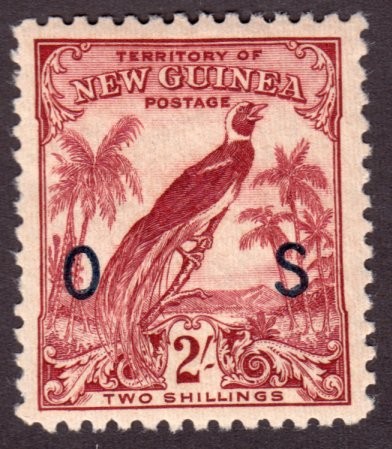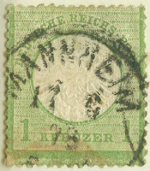by Steve Swain
18th of January 2014
(This article should not be considered as tax advice by the author nor by StampoRama. Please discuss with a tax professional your specific circumstances and the income tax consequences of selling philatelic items.)
Of the multitude of ads in the weekly and monthly philatelic publications I receive through the mail or access via the Internet, I usually just scan the formal ads positioned throughout the publications that are placed by stamp companies and auction houses. I then move quickly to the back pages to review those small, 25-30 word offerings of everything from U.S. booklets to foreign mixtures to entire collections. I’m fascinated by the large number of people placing those ads who, I assume, are my fellow stamp collectors simply expanding the scope of their philatelic activities to include selling stamps. Just another pleasurable, fun part of their hobby. 
But, am I wrong in this assumption? Are those ads being placed by hobbyists with no desire for monetary gain from their sales or rather by hobbyists who engage in the selling of philatelic material with a definite desire for profit? Or, what about non-hobbyists whose sole focus is to sell stamps at a profit as part their main livelihood? Are those the people placing the ads? (And consider our StampoRama members who offer items on our auction and approval pages. Into which category do they fall?)
Certainly, nothing prohibits someone from being included in any of those categories. So, you may ask, “What difference does it make?”
At least one difference is related to the U.S. income tax consequences of the sales.

Income realized from the sales of stamps and other philatelic items definitely falls within the taxable classification. But are the associated marketing and selling expenses deductible on the seller’s tax return: the cost of placing the ads, the packaging materials and postage required when sold items are delivered, miscellaneous office expenses, etc.?
The entire issue turns on whether the stamp selling activities are simply associated with a hobby or, instead, are activities engaged in for profit.
So, if you hope to reap the benefits of some special advantages on your tax return from selling stamps - and having the IRS approve such advantages, - it is important to understand the difference between engaged in or not engaged in for profit.

In general, taxpayers may deduct ordinary and necessary expenses for conducting a trade or a business for the production of income, that is, activities engaged in for profit. But, when an activity is not engaged in for profit, Internal Revenue Code (IRC) Section 183 - Activities Not Engaged in for Profit - limits deductions that can be claimed on your tax return.
That Code section is commonly referred to as the “hobby loss rule.”
In essence, the rule holds that losses from your hobby activities, e.g., selling stamps, may not be used to offset other income included in your tax return. (An activity produces a loss when expenses related to the activity exceed the income recognized from the activity.)
However, some benefit is provided you by the rule in that you are at least allowed to deduct expenses associated with your stamp selling activities up to the dollar amount of the stamp sales, but not more. Depending on your specific income level and other tax return factors, deductions for hobby activities may be allowed as itemized deductions on Schedule A of your Form 1040 tax return.  The hobby loss rule was first issued in 1946. It gained a heightened sense of
The hobby loss rule was first issued in 1946. It gained a heightened sense of
importance for the IRS given findings issued in a 2007 report by the Treasury
Inspector General entitled “Significant Challenges Exist in Determining Whether
Taxpayers With Schedule C Losses are Engaged in Tax Abuse.” The report’s
most significant finding was that about 1.5 million taxpayers (in a certain income
level) filed Form 1040 Schedule C -Profit or Loss from Business showing no
profits, only losses, over consecutive tax years 2002 – 2005. By claiming those
losses to reduce their taxable incomes, about 1.2 million of the 1.5 million
taxpayers potentially avoided paying $2.8 billion in taxes in Tax Year 2005.
The IRS concluded that changes were needed to prevent taxpayers from continually deducting losses in potentially not-for-profit activities to reduce their tax liabilities. Thus, the hobby loss rule under IRC Section 183 was expanded and deductions began to be scrutinized more closely and challenged more often by the IRS.
Taxpayers bear the burden of proving that they engaged in the activity with an actual and honest objective of realizing a profit. However, neither the Internal Revenue Code nor the tax Regulations provides an absolute definition. Historically, IRC Section 183 has been a difficult issue.
Are there factors that can help you determine whether your stamp selling activity is a hobby or is engaged in for profit? Although not all inclusive, guidelines provided by the IRS include:
- Does the time and effort put into the activity indicate an intention to make a profit?
- Do you depend on income from the activity?
- If there are losses, are they due to circumstances beyond your control or did they occur in the start-up phase of the business?
- Have you changed methods of operation to improve profitability?
- Do you have the knowledge needed to carry on the activity as a successful business?
- Have you made a profit in similar activities in the past?
- Does the activity make a profit in some years?
- Do you expect to make a profit in the future from the appreciation of assets used in the activity?
 None of these factors, alone or in any combination, guarantees that your stamp selling activities will be deemed either for or not for profit. Each taxpayer’s situation stands on its own facts and circumstances. But, fully understanding these factors and exercising the appropriate amount of due diligence in your stamp selling activities as a profit-motivated endeavor will surely bode well with the IRS when you claim advantages on your tax return related to your stamp sales.
None of these factors, alone or in any combination, guarantees that your stamp selling activities will be deemed either for or not for profit. Each taxpayer’s situation stands on its own facts and circumstances. But, fully understanding these factors and exercising the appropriate amount of due diligence in your stamp selling activities as a profit-motivated endeavor will surely bode well with the IRS when you claim advantages on your tax return related to your stamp sales.
I eagerly await the next round of stamp publications so I can again pour over the hundreds of ads and continue to muse about “What difference does it make?”


